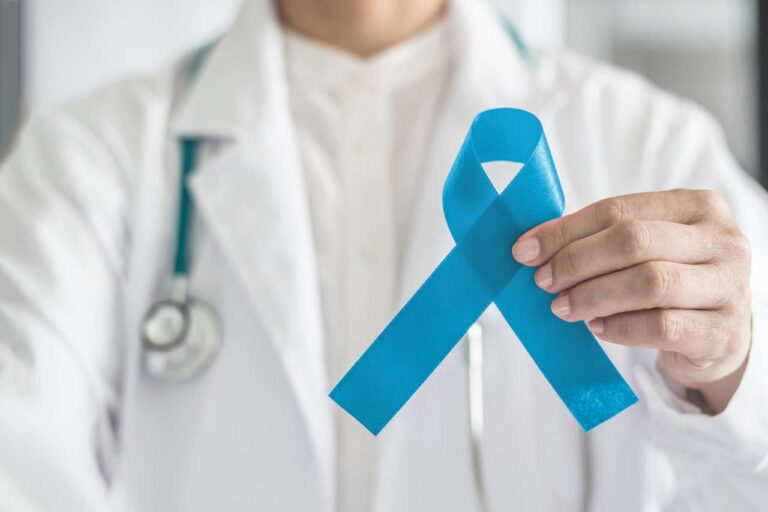
Ifosfamide injection (brand name: Ifex) is an FDA-approved drug used with other cancer medications to treat certain cancers of the testicles. Learn about its dosage, side effects, mechanism of action, and more.
Get Financial Assistance
Important Ifosfamide Warnings
This medication suppresses your immune system. In severe cases, it can lead to life-threatening infections or bleeding.
Call your healthcare provider immediately if you experience:
- Fever
- Chills
- Sore throat
- Persistent cough and congestion
- Unusual bleeding or bruising
- Bloody or black stools
- Bloody, coffee-ground-like vomit
Ifosfamide may cause brain damage, which can be severe or fatal. Call your healthcare provider immediately if you experience:
- Confusion
- Drowsiness
- Blurred vision
- Loss of balance
- Problems with understanding or speaking
- Hallucinations
- Burning, numbness, or tingling in the hands or feet
- Seizures
- Coma
This medication may cause severe or potentially fatal kidney problems (during or several months after stopping treatment). Call your healthcare provider immediately if you experience:
- Decreased urination
- Swollen face, arms, hands, feet, ankles, or lower legs
- Excessive tiredness or weakness
Before Taking Ifosfamide Injection
Before you receive the first dose of ifosfamide, inform your provider if you:
- Are allergic to this medication or any component of it
- Take a herbal product called St. John’s wort
- Have or ever had heart, liver, or kidney disease
- Have been treated with radiation therapy or other chemotherapy drugs
- Are having surgery
- Drink alcohol
Ifosfamide Introduction and Uses
Ifosfamide injection is an FDA-approved drug used with other cancer medications to treat certain cancers of the testicles. This medication may also be used with a detoxifying agent (mesna) to prevent inflammation of the urinary bladder lining.
Ifosfamide belongs to a medicine class called alkylating agents. Other drugs in this class are cyclophosphamide, chlorambucil, and busulfan.
Ifosfamide Mechanism of Action
Your liver enzymes convert ifosfamide into active substances. These substances work in two ways. First, they cause cancer cell damage; the damaged cells are removed by the body. Second, they permanently damage DNA and block protein formation in cancer cells.
Get Copay Assistance Now
Ifosfamide Dosage
Ifosfamide comes in single-dose vials in the following strengths:
- 1 g/20 ml single-dose vial of ifosfamide
- 3 g/60 ml single-dose vial of ifosfamide
A healthcare provider administers ifosfamide injection slowly (lasting at least 30 minutes) into your vein (intravenously; IV).
The usual dose (in combination with other cancer medicines) is 1.2g/m2 IV daily on days 1 to 5, repeated every 21 days. In simple terms, one cycle of treatment lasts 21 days, but you will receive medication only during the first 5 days of the 21-day cycle. Your provider will determine how many cycles you need.
Your provider will closely monitor you or change doses if you have liver or kidney problems. Treatment may be delayed if you experience severe side effects.
If you are a female of childbearing age, your provider will order a pregnancy test to determine if you are pregnant.
You should drink plenty of fluids during treatment to lower the risk of bladder toxicity.
Ifosfamide Side Effects
Common Side Effects

Call your healthcare provider if the following symptoms worsen or don’t go away after taking an ifosfamide injection:
- Nausea and vomiting
- Confusion, vision problems, thinking problems
- Numbness, tingling, burning pain
- Infections
- Urination problems
- Hair loss
Allergic Reactions
Seek emergency medical care if you experience:
- Hives
- Difficult breathing
- Swelling in your face or throat
Severe Skin Reactions
Seek emergency medical care if you experience:
- Fever
- Sore throat
- Burning eyes
- Skin pain
- Red or purple skin rash with blistering and peeling
Severe or Fatal Infections
Call your healthcare provider immediately if you experience:
- Fever, chills, or flu symptoms
- Mouth and throat ulcers
- Skin sores, pale skin, cold hands and feet
- Easy bruising, unusual bleeding
- Increased heart rate
- Shallow breathing
- Lightheadedness
- Difficulty breathing
Severe Side Effects
Call your healthcare provider immediately if you experience:
- Confusion
- Bizarre thoughts or behavior
- Hallucinations
- Seizures
- Little or no urination
- Painful or difficult urination
- Blood in your urine
- Loss of bladder control
- Uncontrollable muscle movement
- Difficulty hearing or seeing
- Ringing in the ears
- Sudden chest pain
- Wheezing and dry cough
- Dark urine
- Yellowish skin or eyes (jaundice)
- Delayed wound healing
Speak to a Specialist
About Copay AssistanceUse During Pregnancy and Lactation
If you are a woman of childbearing age, your provider will order a test to check if you are pregnant. Ifosfamide can harm your unborn baby. Women should avoid getting pregnant, and men should not father a child during treatment with this medication.
Women should avoid breastfeeding during treatment with this cancer medication.
Effects on Fertility
Men
Men treated with this medication may have little or no sperm in their semen. Male children treated with ifosfamide before the onset of puberty may not develop characteristic features of male puberty, such as voice changes, body hair, and growth spurts.
Fertility problems may be reversible in some cases. However, it might take years after stopping treatment.
Ifosfamide does not seem to affect sex drive and function in most men.
Women
Women treated with this medication may stop having periods, temporarily or permanently. Higher age at the time of starting treatment is associated with an increased risk of permanent cessation of monthly periods.
Female children treated with ifosfamide before the onset of puberty may have problems with conception. Those with intact ovarian function may reach menopause earlier than usual. Menopause is when a woman does not have periods for 12 months.
What To Do If You Miss a Dose
Call your provider immediately and follow instructions.
What To Do If You Overdose
Call the poison control helpline at 1-800-222-1222. Signs of an overdose can include:
- Blurred vision
- Hallucinations
- Fever, sore throat, chills, or other signs of infection
- Unusual bleeding or bruising
- Black and tarry stools
- Bloody vomit
- Decreased urination
- Swollen face, throat, tongue, lips, eyes, hands, feet, ankles, or lower legs
- Sores in the mouth and throat
- Seizures
- Confusion
- Coma
Methylene blue (MB) is often used as an antidote to treat ifosfamide-induced brain damage.
Things to Avoid During Treatment With Ifosfamide
- Activities that require quick reactions and concentration, such as driving
- Drinking alcohol
- Grapefruit products
- Close contact with sick or infected people
- Receiving “live” vaccines, such as measles, mumps, rubella (MMR), rotavirus, typhoid, yellow fever, varicella (chickenpox), zoster (shingles), and nasal flu (influenza)












